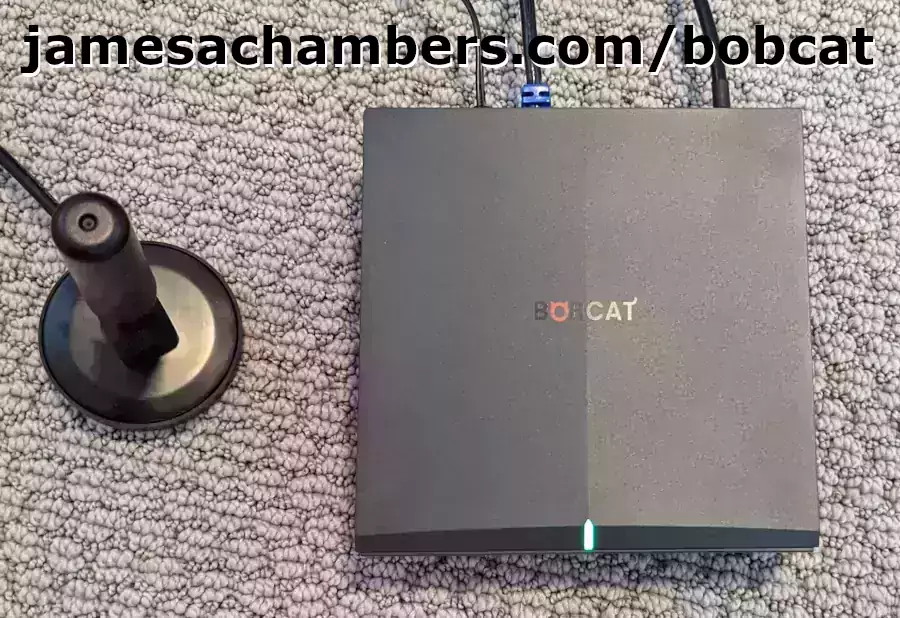
I recently received my Bobcat 300 miner* after months of waiting. Much of the advice I’d read/seen on the subject suggested to leave the hotspot alone and that it takes a very long time to sync.
This is true but it assumes you configured your network correctly first and have the correct port opened to the outside world. If it’s not it will take even longer to sync the blockchain and your hotspot will have a yellow “Relayed” status. This is slowing down your sync and will harm your rewards even when it finishes since your responses to challenges will be “relayed” and will often time out before they are relayed through other hotspots.
In this guide I’ll show you how to get your network configured correctly for your hotspot to sync as fast as possible and remove the “Relayed” status!
Overview
The Helium hotspot uses peer to peer networking similar to other cryptocurrency wallets (with “nodes” etc.) as well as BitTorrent and other peer to peer applications. Xbox Live and PSN also both use peer to peer networking where one console with a high quality internet connection will be chosen to be the “host” and the other players in the game lobby create a peer to peer connection to the host console.
Just like every other peer to peer application not having the correct ports open on your firewall impacts your speed. On our Xbox Live/PSN example you would get a “poor” connection rating and never be chosen as a host. With Helium the “Relayed” status is the equivalent of the Xbox Live/PSN “Poor” connection quality rating. The ports are not publicly accessible over the internet and you get penalized / a downgraded experience for this.
Here’s an example of a relayed hotspot:
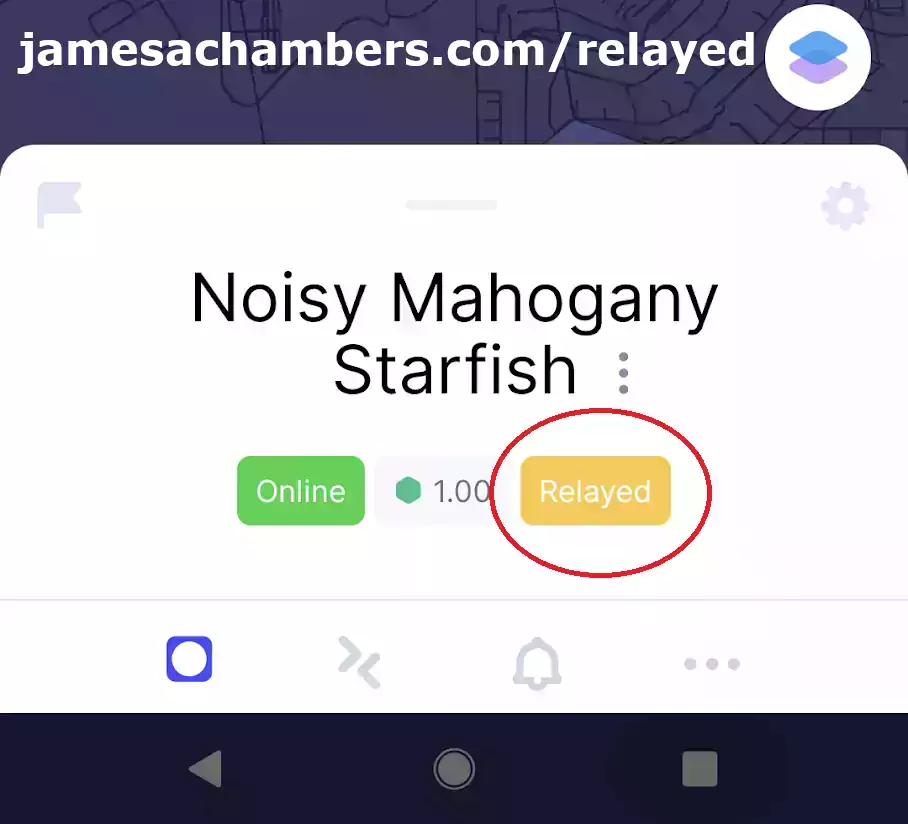
The solution is to open the correct port on your firewall by creating a “port forwarding” entry in your router.
Port Forwarding
The specific instructions for your router will vary but can be found with a quick Google search. It’s likely you’ve encountered this before for something else but if you haven’t it isn’t too difficult.
Once you feel confident you have the knowledge/instructions you need ready to set up port forwarding the main critical port you need to forward on your router is TCP Port:
44158
This is the port that will eliminate the “relayed” status and allow inbound connections to your device. This will also speed up your sync as outbound only points are at a disadvantage here since sometimes the people who connect to you end up sending you blocks!
Once you’ve set up the port forwarding it should update the status on it’s own eventually or if you want to speed things up you can unplug the power cable from the hotspot for about 10 seconds and then plug it back in. With all the hotspots joining it may take 15-30+ minutes (depending on many factors) but it should show up as solid green with no “relayed” status:
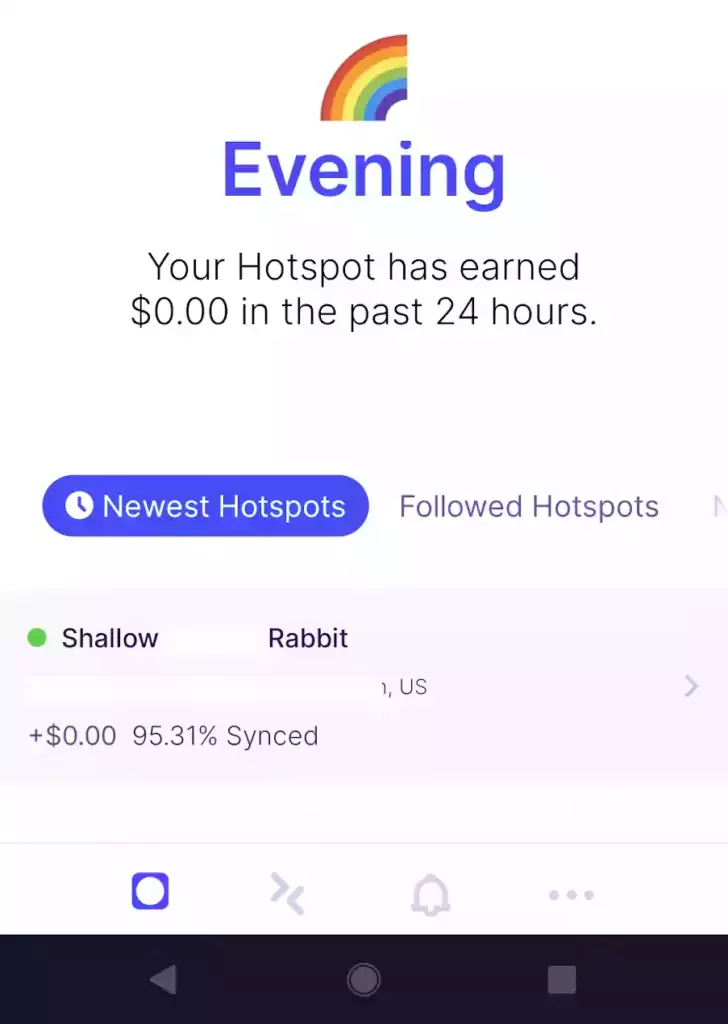
Observe that even though I am not 100% sync’d I still am green status with 91.31% sync’d. This can get very sluggish to update sometimes but unless you’re seeing no activity whatsoever for at least a few hours I would urge leaving it alone for the most part.
Note on Offline Status
It’s not unusual for the hotspots to go offline when trying to sync with the blockchain. They should however still be connecting periodically and you should see your sync slowly making progress.
My hotspot has got stuck several times where it went off for the entire night and when I turned it back on it had made no progress.
My best rule of thumb is to leave it alone as long as the light is “green” (for the Bobcat miner*) unless you aren’t seeing any change or progress for a long period of time. This may vary based on your miner but the problems actually seem to be with the Helium network as a whole. Which miner you have can have an impact but most of the congestion is on the Helium network itself from so many new hotspots joining and syncing at once!
Conclusion
I’m still not fully synchronized yet with the blockchain but it’s staying green and doesn’t have the relay status. So many points are joining the network that the hardware is having a difficult time keeping up!
Remember, the relay status does penalize your mining rewards. It also prevents you from participating in several other features in the Helium blockchain so make sure you have a green non-relayed status.
It’s definitely frustrating how slow it can be but as long as you periodically monitor that the percentage is going up (wait a few hours minimum before power cycling) and have your ports opened you will sync as fast as anyone else is (slowly) but you won’t be at a disadvantage!
If you have a Bobcat 300 they have just released a utility called the “Diagnoser”. Full guide here: Bobcat 300 Diagnoser Tool / Utility Guide
Update 6/23/2021
I woke up this morning to find the hotspot 99.79% sync’d. It was offline and after a quick unplug and plug back in I’m syncing again and at 99.81%. This is the way folks, open that port and get out of relayed!
Update 6/24/2021
Success! My hotspot has completely sync’d. I’ve issued and completed a challenge now and am just waiting to witness my first hotspot and even earned 0.05 HNT for some reason (maybe my issued or successfully completed challenge?):
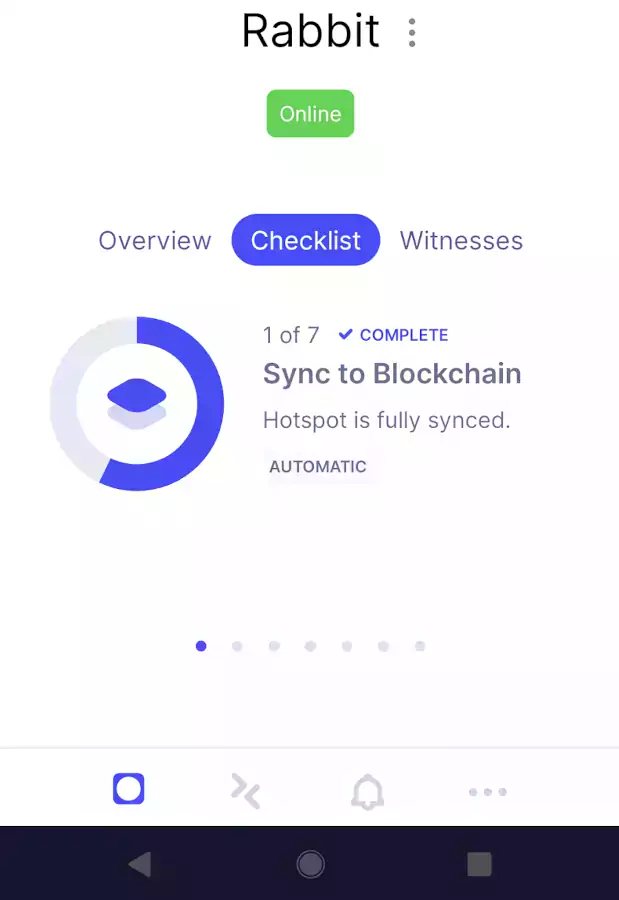
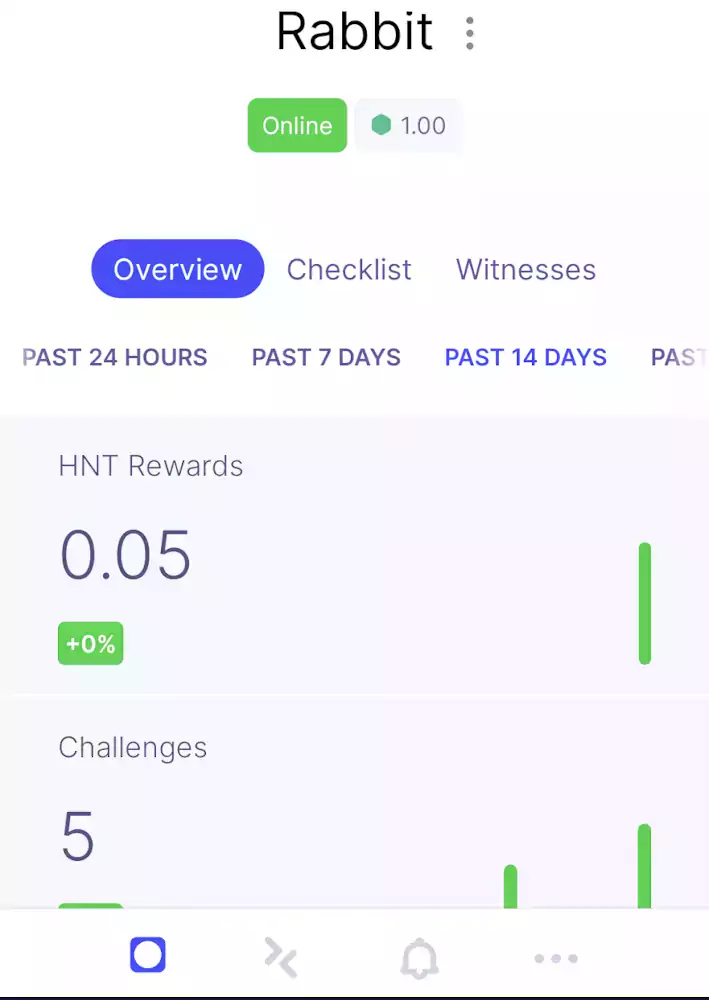
All in all it took about 5.5-6 days. This is because of so many new hotspots coming online so if you’re in a similar time range don’t panic unless you’re still at a really low % sync’d. Don’t give up, mine took forever but it’s finally working.
Update 6/29/2021
I’ve investigated the effects of relayed vs. non relayed status. If you observe the connections with an enterprise firewall you can see how many connections it has at a time. When you are in relayed status you will only have about 4 connections. When your ports are opened you’ll have closer to 20-100 connections! All of these connections are transferring data so it definitely helps speed things up.
The point has been running for a few days now and has already earned about 15 HNT! Hang in there, it’s worth it!
Update 8/7/2021
If your miner and radio aren’t the same unit (not the case with newer miners) you should also port forward UDP port:
1680
I discovered that this was a listening public port when writing my guide on the new Bobcat 300 “Diagnoser” tool. I then was able to confirm this on the official Helium GitHub page.
The document says that if your miner and radio are the same unit then port forwarding this from the internet is not important so the Bobcat 300 (and all other Helium miners that have a name) do not need this but I wanted to add it here for completeness.
In other words, your Bobcat 300 (and the other newer “approved” models) and your radio are already the same device so they don’t need any ports opened or forwarded to talk to each other even though you can see it listening on the diagnostics. On older miners (back when you were able to make your own homebrew frankenminers and join the network without a special enrollment key) this wasn’t necessarily the case and then you would need to forward this port.
A port forward should not be necessary for most people unless you know your radio is separate from your miner (it probably isn’t, and you can’t make these types of miners anymore).
If you didn’t build your hotspot yourself, from parts, by hand, you do not have this. An external antenna does not apply, That is NOT a radio unit. It’s just an antenna and it can’t do anything by itself without a radio unit controlling it.
A “radio unit” is the computer/device that the end of your antenna plugs into. It has to have a CPU to process signals from / send signals to the antenna. If your antenna plugs directly into your miner then your miner *IS* the radio unit for sure and this is almost certainly the case for you.
It’s no longer possible to do this (only approved manufacturer hotspots can join the Helium network now, but you used to be able to homebrew) and hasn’t been for a long time because people used to make tons of hacked/spoofed hotspots (still a problem to this day but it used to be much, much worse).
Was your hotspot manufactured by a company like Bobcat, RAK, Synchrobit, any of them? Then you didn’t build a homebrew hotspot from parts by hand so you don’t have one and this does not apply to you. There has never been one sold like this that has a name or brand. If you can tell me what your hotspot “is” and that actually means something you don’t have it!
Hopefully this clears up some confusion for anyone else who is investigating this. The new Bobcat 300 diagnostic tool will undoubtedly make many other people wonder about this as well. The answer is that yes the Bobcat is listening on that port, but it’s talking to another chip that is also literally a part of the Bobcat. It’s like a computer talking to localhost or 127.0.0.1.
It doesn’t matter what your internet connection’s firewall is doing in this situation. It’s only a “localhost” connection in a modern Helium miner’s case because it doesn’t need to make any external connections like old school homebrew setups may have had to at some point.
You for sure do not have to worry about this now with any hotspot that has a “brand” or “name” and you didn’t build yourself!
Other Resources
For the best place to mine and exchange your altcoins such as Helium (HNT) to Bitcoin (BTC) check out my Best Altcoin Mining Pools and Exchanges article
If you have a Bobcat check out my Bobcat 300 Diagnoser Tool guide to learn how to use this tool
If you have a Nebra hotspot check out my getting root and SSH access to the Nebra guide

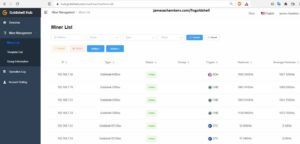
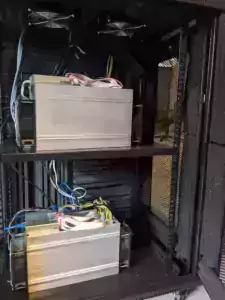
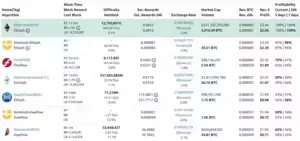
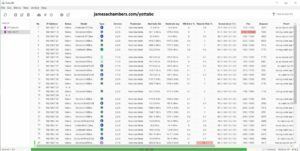
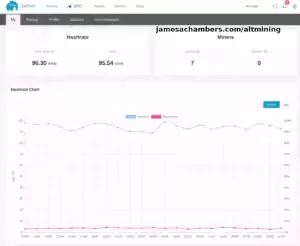
Hello James,
I was wondering if you could give me some advice as to why my hotspot has been acting up this week.
Ever since the 1.0.3.3 OTA update, my bobcat has been showing a yellow light, and any Sync or Fast Sync options are now missing from the diagnoser dashboard.
I’ve port forwarded 44158 a long time ago, all seemed fine under miner.json until now, it’s only showing information about two ports instead of the usual four. Furthermore, there is a lot less data there than usual, no info on NAT for example.
My ISP only provides dynamic IPs, but I haven’t noticed any issues with my bobcat in the past regarding this.
I’m happy to provide any more information if needed.
Thank you very much for your time.
Hey Mww,
Welcome! I also only have dynamic IPs so this shouldn’t be too big of an issue. I do notice when my IP changes that my IP may not update right away in the Helium app / the diagnostics so it might hurt your earnings slightly when the IP changes but I’ve always had mine the same way and it has never been too big of a problem.
I tried to log into my Bobcat Diagnoser to see if my options had also changed as I suspect I know what is going on only to discover it was completely down and the light was yellow on it. After power cycling it it finally came back up here and I was able to reach the Diagnoser. Mine is the same way.
Alright. Here is what has happened. You are now a “Light hotspot”. Your hotspot no longer stores a copy of the blockchain basically. It’s no longer eligible to validate transactions (although in reality getting in the validator pool was taken away a long time ago). This article is the best at explaining it.
Here’s a highlight:
Light Hotspots is a term used for a free software update. When activated, all Helium-compatible Hotspots will become Light Hotspots, with no action or additional hardware required on your part. The best part? Once activated, Hotspots will (over time) use a fraction of the data that they use today, so gone will be the days of Hotspot syncing issues and relayed statuses.We are now all light hotspots. Your hotspot no longer “mines” anything. It doesn’t even have a copy of the blockchain anymore. Port 44158 is no longer used. Basically relayed status is no longer a thing because your hotspot no longer can validate transactions or even has a copy of the blockchain. It does very, very little now in other words.
You can also see the development timeline here. This is completed. I actually remember when hotspots used to validate transactions and some lucky people who got in the validator pool made like $5000 in 24 hours and crazy, crazy amounts like that. Those were definitely the good old days and Helium works nothing like this now. Another highlight:
April 19 2022 May 11: Activate set of chain variables to enable Light Hotspots on MainnetSeveral weeks later: Deactivate Miner on Light Hotspots on Mainnet such that they run gateway-rs only
In other words relayed status no longer exists because your hotspot isn’t actually a miner anymore. That functionality has been deactivated (their words, not mine, “Deactivate Miner on Light Hotspots on Mainnet such that they run gateway-rs only”). You no longer own a Helium miner and now own a Helium light hotspot. It still earns Helium and does beacons for proof of coverage but that is what you are getting paid for (and all you are getting paid for, maybe some data credits but those seem to be pretty rare to encounter from what I’ve seen/heard). The hotspot is not technically a miner anymore and doesn’t even have a copy of the blockchain. This should honestly make them a lot more reliable because the low powered hardware they used in these hotspots was definitely struggling.
Or to put it more bluntly: Helium actually killed mining and went purely to validators (selected solely by the developers and whatever criteria they set of course) just like Ethereum is going to do. Their selected validators now validate all Helium transactions and there is no mining. Whether you think this is good or not depends on your perspective (I don’t) but there are definitely upsides and downsides for sure.
I don’t consider a pool of validators controlled by the developers anything resembling “the people’s network” (their slogan, or it was long ago, haven’t checked if it is now) no matter how you try to twist and mangle the definitions/terms. I consider it a hostile takeover both on Helium and on Ethereum by the developers who I frankly could not have much more contempt for. I’ve personally ceased any investment in Helium or anything related to it (as well as Ethereum) and think they’ve signed their own death warrant and made themselves a pretend crypto with no real hardware/miners backing it (technically Helium still has the hotspots at least which has some value whereas with Ethereum that won’t be the case).
Hopefully that helps explain it!
Wow I’m stunned !
You couldn’t have explained it any clearer !
I completely agree with what you are saying, I was initially attracted to Helium for that very reason, and the huge potential I saw in it’s “people’s network”, but I suppose every good party ends after a while.. Quite sad how the project’s trajectory has changed in recent months.
Although, I have to say I had my miner on back order for so many months I slowly distanced myself from all the changes happening on the network, and must have missed this significant shift of all miners towards light hotspots..
I want to thank you for all the time you put into this message, very appreciated, you have taught me a heck of a lot !
Glad to see such kind and knowledgeable people such as yourself in the community.
Wish you all the best.
Hey Mww,
No problem at all, I’m glad I was able to help! I honestly had not realized this had gone live on my own point as well yet. It’s easy to not pay as much attention when there’s so much bad news everywhere (in fact I’d argue everyone has to do that to a certain extent to maintain their own sanity). My point definitely needed attention after whatever they did to it but a power cycle seemed to get things going and happy again.
I learned a lot too so I appreciate the question as this brought me up to speed on all of this as well. Take care!